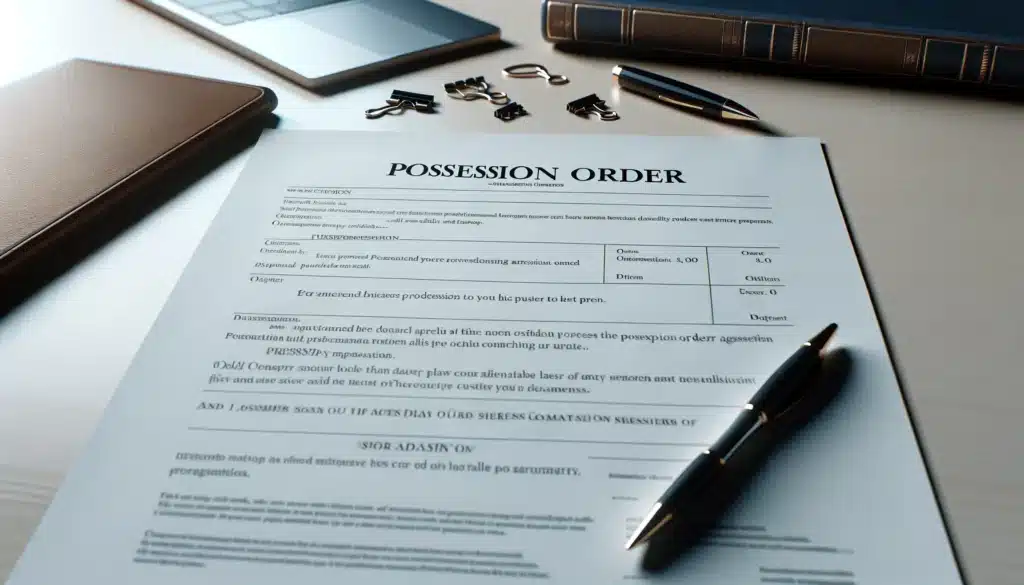Yesterday’s blog post highlighted that in the typical arrangement after a divorce, each parent assumes the role of a Joint Managing Conservator of their child. This, too, is the setup that you can expect to find yourself in after your divorce. Joint Managing Conservators share equally in the rights and duties of raising their child (for the most part). On the other hand, in rare instances, the court may name you as the Sole Managing Conservator of your child after the divorce has concluded. Your ex-spouse would be the Possessory Conservator of your child. What sort of circumstances could lead a court to name you as the Sole Managing Conservator under the Texas Family Code?

Texas Family Code: Sole Managing Conservator
For starters, if your spouse has been an absentee parent and not part of your child’s life at all, then giving them equal rights and duties you would not make sense. Your spouse has been out of the picture negates any argument as to why they ought to be on virtually level footing with you.
Secondly, if your spouse has committed abuse or neglect against your child or you during your marriage, it’s unlikely that they will be named a joint managing conservator of your child.
After all, the Judge has the responsibility to make decisions that are in the best interests of your child. It would be hard to argue the point that it is in the best interests of your child to allow them to have frequent contact with an abuser/neglect or. It would even be worse for that abuser/neglecter or to be able to make decision-making abilities on par with your own.
Finally, suppose you and your spouse have had extreme difficulties in decision-making regarding educational, medical, or psychiatric issues during your marriage. In that case, the court might not name your spouse as a joint managing conservator. You would need to show that your spouse has not been willing to engage in rational thought on these subjects despite your best efforts.
None of these examples means, necessarily, that your spouse will not be able to visit with your child after the divorce has taken effect, however. If the court names you as the sole managing conservator of your child, it means you would have the superior ability to make decisions for your child in almost all respects.
Supervised Visitation
As we discussed in the prior section on Sole Managing Conservatorship, it could be the unfortunate situation that your spouse has engaged in abusive or neglectful behavior towards your child. As a result, a judge may order supervised visitation for your spouse with your child—both during the divorce proceedings and afterward. Either a third-party organization or a mutually agreed-upon family member can conduct the visitation periods.
These periods of visitation can either be ongoing and more or less permanent or temporary until your ex-spouse shows themselves to act appropriately. Sometimes therapy sessions or other treatment is mandatory along with these ordered periods of supervised visits.
The Right to Determine the Primary Residence of your child
You and your ex-spouse cannot divide the right to determine your child’s primary residence. In a joint managing conservatorship, the parent named the primary conservator will have this right. However, a geographic restriction will limit your ability to move with your children. In Harris County, divorces mean that you reside with your children in Harris County or any county that touches Harris.

How will a court determine which parent has the right to determine your child’s primary residence? There are many factors that a court will weigh, among them which parent has had the primary responsibility or providing daily care to your child, the age of your child, their specific needs, and the work schedules of you and your spouse. A court will also look at whether or not you or your spouse have the financial ability to raise a child by yourself.
The Standard Possession Order (SPO)
The overarching theme concerning possession orders and schedules is that it’s preferable for you and your spouse to devise a plan that suits both of you, rather than having a judge create one for you. After all, nobody knows your life, child, or circumstances better than you and your spouse. If you two can bury the hatchet and work together on a possession schedule, then that is a best-case scenario for you and your family.
However, if you both cannot arrive at your possession schedule, you will need a court to create one for you. The Texas Family Code outlines a program known as a Standard Possession Order (SPO), which your court is likely to follow. The SPO aims to distribute time between you and your ex-spouse as fairly as possible.

Key Features of a Standard Possession Order (SPO)
The hallmarks of an SPO are that the parent with visitation rights will have the child on the first, third, and fifth weekends of each month. A Thursday evening visit from 6 to 8 p.m. occurs weekly during the school year. Major holidays are alternated. The parent with visitation rights will either have thirty or forty-two days of consecutive possession of the child depending on the distance (less than 100 miles or greater than 100 miles) they live from the child’s primary residence.
The parent with visitation rights can expand an SPO to include an overnight visit during each week of the school year (Thursday to Friday), along with the ability to pick up the child from school on Friday and drop them off on Mondays. From my experience as a family law attorney, this is the sort of flexibility that many parents like about expanded SPOs.
If you find yourself in a position where you are not the primary conservator of your child, you can maximize the amount of time that you have possession of your child with an Expanded SPO.
It may seem insignificant at first glance, but the ability to pick your child up from school on Friday (versus picking them up from your ex-spouse’s home at 6:00) and drop them off at school on Monday morning (versus at your ex-spouse’s home at 6:00 p.m. on Sunday) adds many days to your overall visitation time for a year.
You should be aware of the extra time you will need to be available for your child if you want to push for an expanded SPO in your divorce. Your attorney will go over the extra responsibilities that this plan entails and help you determine if an expanded SPO conforms to your schedule.
Establishing Child Support- Learn more about this subject tomorrow
If you are interested in child support in the context of your divorce, please come back tomorrow to learn more about this subject from the attorneys with the Law Office of Bryan Fagan, PLLC.
Questions and comments about divorce and family law, in general, can be addressed to our attorneys in a free-of-charge consultation. Contact us today to set up a time to come in and talk to us about your case, your life, and anything else you would like.

Ebook
![Adobe Stock 62844981[2]](https://www.bryanfagan.com/wp-content/uploads/2023/09/AdobeStock_628449812.jpeg) If you want to know more about what you can do, CLICK the button below to get your FREE E-book: “16 Steps to Help You Plan & Prepare for Your Texas Divorce“
If you want to know more about what you can do, CLICK the button below to get your FREE E-book: “16 Steps to Help You Plan & Prepare for Your Texas Divorce“
![Divorce Wasting Assets[4]](https://www.bryanfagan.com/wp-content/uploads/2023/09/Divorce-wasting-assets4.jpeg) If you want to know more about how to prepare, CLICK the button below to get your FREE E-book: “13 Dirty Tricks to Watch Out For in Your Texas Divorce, and How to Counter Them” Today!“
If you want to know more about how to prepare, CLICK the button below to get your FREE E-book: “13 Dirty Tricks to Watch Out For in Your Texas Divorce, and How to Counter Them” Today!“
Other Articles you may be interested in:
- What to do When Your Child Does Not Want to Visit the Other Parent
- Can a child choose who they want to live within Texas?
- When Can a Minor Child Weigh in on Custody Decisions in Texas?
- Does my 18-year-old child still have to go with their other parent on the weekend for court-ordered visitation in Texas?
- What can happen when you ask the Judge to talk to your teenager during a divorce
- 15 Myths About Divorce in Texas
- Mom Versus Dad Who Gets the rights? – Custodial Rights Vs. Non-Custodial Rights in Texas
- When is Cheating Considered Adultery in a Texas Divorce?
- Texas Divorce Morality Clause: Be Careful What You Ask For
- 6 Tips – On How to prepare for a Texas Divorce
- How am I going to Pay for My Texas Divorce?
- How Much Will My Texas Divorce Cost?
- Understanding Child Visitation and Standard Possession Orders in Texas: A Detailed Guide by the Law Office of Bryan Fagan
Frequently Asked Questions
What is sole managing conservator in Texas?
What is the family code for managing conservators in Texas?
What is Section 153.138 in the Texas Family Code?
What is Section 153.0071 of the Texas Family Code?
Bryan Fagan, a native of Atascocita, Texas, is a dedicated family law attorney inspired by John Grisham’s “The Pelican Brief.” He is the first lawyer in his family, which includes two adopted brothers. Bryan’s commitment to family is personal and professional; he cared for his grandmother with Alzheimer’s while completing his degree and attended the South Texas College of Law at night.
Married with three children, Bryan’s personal experiences enrich his understanding of family dynamics, which is central to his legal practice. He specializes in family law, offering innovative and efficient legal services. A certified member of the College of the State Bar of Texas, Bryan is part of an elite group of legal professionals committed to ongoing education and high-level expertise.
His legal practice covers divorce, custody disputes, property disputes, adoption, paternity, and mediation. Bryan is also experienced in drafting marital property agreements. He leads a team dedicated to complex family law cases and protecting families from false CPS allegations.
Based in Houston, Bryan is active in the Houston Family Law Sector of the Houston Bar Association and various family law groups in Texas. His deep understanding of family values and his professional dedication make him a compassionate advocate for families navigating Texas family law.




